James R. Callan's Blog, page 21
April 17, 2015
Christian Writer Tackles Dark Issues
Today, I’m interviewing Deborah Piccurelli, a winner in a contest the The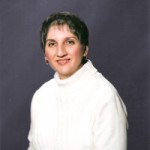 Christian Authors Show and listed in the book, 50 Great Writers You Should be Reading. I’ve got lots of questions, so let’s get started.
Christian Authors Show and listed in the book, 50 Great Writers You Should be Reading. I’ve got lots of questions, so let’s get started.
Jim: You write stories woven around dark issues. In Hush Little Baby it is fetal harvesting. In the Midst of Deceit a man seriously injured in a skydiving accident. What makes you seek out the dark issue stories?
Deborah: I feel that these issues are what the Lord put on my heart to write about. There’s just a certain interest I have in them, and they are issues and causes I want to help do something about.
Jim: Do any of these themes come from some actual incident you know about, or do they just show up in your imagination?
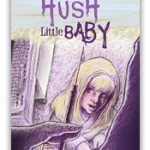 Deborah: In the first book, In the Midst of Deceit, it just came to me as an idea. I later found out that very incident actually happened, and in the exact same town that I used in the book! For Hush, Little Baby, the fetal harvesting is something I saw being explored on television and in magazines. When I researched online, there was a slew of information. This problem is ongoing.
Deborah: In the first book, In the Midst of Deceit, it just came to me as an idea. I later found out that very incident actually happened, and in the exact same town that I used in the book! For Hush, Little Baby, the fetal harvesting is something I saw being explored on television and in magazines. When I researched online, there was a slew of information. This problem is ongoing.
Jim: There was a long gap between In the Midst of Deceit and Hush Little Baby. Would you care to tell us why such a long time waiting for book number two?
Deborah: I had put novel writing aside for a while to collaborate with a Christian film producer on a script from one of my stories.
Jim: Can you give us a look at your writing schedule? Do you have a set time each day, or grab what time you can, or … what?
Deborah: Oh, I’m definitely a grabber! I would like to have a set writing schedule, but my life is such that it’s impossible at this point in time. I used to wake at 5:00 am to write for an hour before the rest of the household got up. I’m still waking at that time, but I now use that hour to spend with the lord. That trumps writing anytime! So I take whatever time I can to get on the computer, which mostly ends up to be in the evening when everyone is at least settled in and watching TV or sleeping.
Jim: Your new book, Love Comes Calling, doesn’t have particularly dark issues, but it does center around deception. Tell us how or why you turned to that issue?
Deborah: First, I just want to explain why Love Comes Calling doesn’t deal with a particularly dark issue, nor does In the Midst of Deceit. I wrote both of those books long before I discovered what my brand was. That came with Hush, Little Baby, because I realized I had tons of notes for other planned books that were all issue and cause subjects. But I had LCC just sitting on a floppy disk (yes, I said floppy!). I didn’t want to let the story go by the wayside, so I entered it into a contest I heard Prism Book Group was running last year.
As for turning to the subject of deception, I had originally written the novella for a publisher who did anthologies, and had advertised four of them they would soon be accepting manuscripts for. I chose the one themed, A Well-kept Secret. Intriguing, right? I had to come up with a story to fit. Thus, the deception, because secrets in novels usually involve some unforgiveable actions on a character’s part that they want to keep hidden.
As an aside, that publisher I originally wrote LCC for had decided not to release that particular anthology before I submitted, and later ceased publishing all anthologies.
Jim: Tell us about your launch party for Love Comes Calling.
Deborah: As I write the answers to these questions, the book has not yet released. The date for that is March 20th. The book launch will be April 10th, and will have happened by the time you post this interview. It will be on Facebook, and there will be games, contests and prizes. This is the first book launch I’ve ever had. If any of your visitors would like to attend, they can “friend” me at www.facebook.com/deborah.piccurelli. Then they can be invited to the launch party.
Jim: How do you plan to market the book now that it is launched and on its way?
Deborah: I will continue to guest on blogs that are willing to host me; I applied to be included in a column for USA Today’s romance books report, and the columnist stated she has put it into her “to be considered” pile; send announcements to contacts on my email list and to groups on the social networks; inquire of the Lord for instructions on anything He wants me to do to get the book out there.
Jim: Would you give the readers a look inside Love Comes Calling?
Deborah: Sure. Here’s an excerpt from Chapter 1:
CHAPTER ONE
Derek Spencer grasped the steering wheel of his SUV with one hand,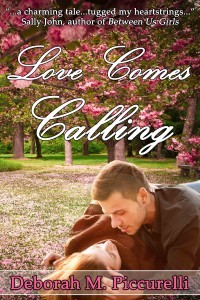 while searching for the address scribbled on the scrap of paper he held in the other.
while searching for the address scribbled on the scrap of paper he held in the other.
Would she be willing to see him? The decision to come forward had been tough, but necessary to his peace of mind and his spiritual well-being. He wanted to make things right with Charlotte Parkes.
Spotting the house, he slowed down and pulled into the driveway. He sat in the car and stared at the small brick rancher, trying to perceive the character of the woman who lived inside. The neatly mowed lawn resembled a rich green carpet, and colorful flower beds lined the perimeter of the house. Cheerful drapes adorned the inside of the picture window in front, inviting him to exit the car and ring the doorbell. He accepted the invitation and bounded up the walk.
Barely three seconds passed when the door was torn open and an attractive young woman with a profusion of curly red hair reached out and pulled him in by the arm.
“Finally. You were supposed to be here an hour ago. What happened? Traffic jam on Route 356?”
“I…” He scratched his head. Did she know him?
“Forget it. You’re here, now. Though I’m not sure your lateness speaks well of you. If you want a job, you must be prompt.”
“But…” What on earth was she talking about?
“Shall we begin? My sister is waiting in the other room.” She strolled away, motioning for him to follow.
Having no other alternative, he complied. At least he had gotten through the door.
As they passed through the living room and dining room, Derek studied his surroundings. The place was neat, clean, and comfortable-looking. The living room set was made up of odd pieces of furniture put together in such a way it gave the illusion they were made especially to be a part of this grouping.
When he entered the kitchen, he recognized Charlotte Parkes from her picture in the newspaper. With her porcelain-smooth skin and shiny auburn hair, she looked like an
angel. Engrossed in squirting colored icing through a tube onto a layer cake, she hadn’t yet noticed him.
“Charlie, the contractor’s here.” Her sister jerked a thumb in his direction.
Contractor?
Charlotte put down the decorating tool, turned full face, and smiled. “Hello, I’m Charlotte, but you can call me Charlie.” She extended one hand and touched the side of her face with the other.
Nothing prepared him for what he saw.
JIM: And lastly, where can our readers get more information on your books, and what is a buy link for them?
Deborah: Naturally, all of the information and links are on my website at www.deborahmpiccurelli.com, with a special discount link to the publisher for a 25% discount for Hush, Little Baby, and another from Deeper Shopping.
Here are Amazon links for each of the books:
LOVE COME CALLING: Amazon.com
HUSH, LITTLE BABY : Amazon.com
IN THE MIDST OF DECEIT: Click here to purchase at Amazon.com
Thank you so much for hosting me, James. It’s been a pleasure to be here.
JIM: Take a moment to Share and Like. Thank you.
April 10, 2015
News Flash: Romance is Not the Number One Genre
Today’s blog is a guest piece from a real authority in the business. D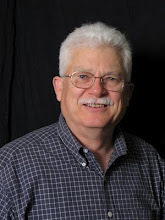 an Case most likely had the first on-line newsletter. He has been the editor of Writing for Dollars for many years. He is also the owner of AWOC.COM Publishing, a small publisher which now has over 150 books to its credit. He is a very successful marketer of digital books. Today, he has some interesting facts for us, AND he’s giving away a book to one of those who leave a comment. So, tell us what you think about the genres and get entered in the drawing for a free book. Thanks. Here’s Dan.
an Case most likely had the first on-line newsletter. He has been the editor of Writing for Dollars for many years. He is also the owner of AWOC.COM Publishing, a small publisher which now has over 150 books to its credit. He is a very successful marketer of digital books. Today, he has some interesting facts for us, AND he’s giving away a book to one of those who leave a comment. So, tell us what you think about the genres and get entered in the drawing for a free book. Thanks. Here’s Dan.
Romance isn’t the bestselling genre? No way. Everyone says it IS number one. Isn’t that correct?
Yes… sort of. I’m speaking of the Romance genre (or category) of commercial fiction. Whenever you hear that Romance is the number-one-selling genre, the source that states this has lumped all romances into one big category. Romance covers dozens of sub-genres—Suspense Romance, Contemporary Romance, Historical Romance, Paranormal Romance, Western Romance, Victorian Romance, Fantasy Romance and many more. All of these sub-categories have one thing in common… the romance formula.
I’m a publisher. In the beginning, I published non-fiction books for writers. As I became more adept at marketing online, I expanded into other areas of non-fiction. Then one day, I did a favor for an author friend of mine and published his novel. He had a previous bad experience with a small publisher that turned out to be a vanity press… Long story. Needless to say, I published his novel and he was good at marketing and it sold reasonably well. Then came Kindle. I published the novel on the Kindle and it sold REALLY well. I started accepting more novels and selling then also. Within two years I was no longer looking for non-fiction. I was suddenly a fiction house. Now, that’s almost all I publish… novels. Mostly ebooks, very few in paperback.
Which novel genre sells best?
I am asked this question a lot from writers. At first, I could only say, “I think romance sells best, but I don’t publish many romance novels. I sell more mystery and thriller novels than anything else.” This wasn’t a very scientific answer. I don’t subscribe to any of the industry periodicals that compile sales statistics and bestseller lists. Mainly because they are no longer accurate because the vast majority of ebook sales are sold on Amazon and Amazon does not report their book sales numbers to anyone.
am asked this question a lot from writers. At first, I could only say, “I think romance sells best, but I don’t publish many romance novels. I sell more mystery and thriller novels than anything else.” This wasn’t a very scientific answer. I don’t subscribe to any of the industry periodicals that compile sales statistics and bestseller lists. Mainly because they are no longer accurate because the vast majority of ebook sales are sold on Amazon and Amazon does not report their book sales numbers to anyone.
I decided to go a different way to find an answer. I went to the number one direct marketing company for ebooks, BookBub. They market ebooks directly to over three million readers by email. Their subscribers specify which genre they want to hear about and Bookbub publishes these numbers on their site for benefit of the advertisers. At Bookbub, Romance is not a category by itself. They break it down into some of its sub-genres—Contemporary Romance, Romantic Suspense, Historical Romance, Erotic Romance.
The number one genre at Bookbub?
Mystery.
Thrillers are a close second, with Historical, Action and Adventure, and Contemporary Romance farther down the list with about the same numbers.
Of course, this doesn’t mean you’ll sell more if you write Mystery as opposed to Contemporary Romance. It just means that a Bookbub ad for Mystery will go to more people than an ad for Contemporary Romance. The idea that Mystery is the number one genre just because it has more readers than any of the Romance categories on Bookbub isn’t very scientific either, because like Romance, Mystery has dozens of sub-categories—Cozy, Detective, Woman Sleuth, Procedural, Hard boiled.
So what genre will be the best genre for you to have a bestseller in? That’s what you really want to know isn’t it?
For an unknown writer, it would be best if you chose a category where you can identify a very large number of readers. And yes, it can be a bestseller in Romance or Mystery or Thriller ONLY if you write a great book. Period.
.JIM: Thanks, Dan for enlightening us. And since I write mysteries, I’m glad to hear that. Folks, you can find out more about Dan Case’s publishing at: www.awoc.com
And, Dan is giving away a book to one person selected at random from those who comment. So, leave a comment (even a few words will do) and get a change – and it’s FREE.
April 3, 2015
PTSD – Living with War
Today, Velda Brotherton visits and gives us some insight into  PTSD and how it can affect people. Velda has been writing for over thirty years, and writes sexy, dark, and gritty historical romances, vintage mainstream, and mystery novels, all with an authenticity that makes her characters and stories ring true. In addition she conducts workshops and speaks at conferences as well as co-chairing a successful critique group. Today topic is important. Take a few minutes, please. Leave a comment for a chance to win a book.
PTSD and how it can affect people. Velda has been writing for over thirty years, and writes sexy, dark, and gritty historical romances, vintage mainstream, and mystery novels, all with an authenticity that makes her characters and stories ring true. In addition she conducts workshops and speaks at conferences as well as co-chairing a successful critique group. Today topic is important. Take a few minutes, please. Leave a comment for a chance to win a book.
What if you were walking down the street in your quiet, peaceful hometown and you turned a corner and stepped onto a battlefield? Perhaps reminiscent of the war zone you left five or ten years ago? Your friends, men you fought beside, lie dying all around you, heat and explosions of mortar fire blasts from all directions. It’s as real as if it were happening and you can’t get away. You can’t escape the horror. It’s not a memory, it’s the real thing. And you have been thrown back into a battle so vivid you believe you are there.
 Then think what it would be like in the aftermath, coming to your senses to see people standing around staring, pointing, laughing. They think you’re crazy. Sometimes you are arrested for your behavior in public. You might be unable to hold down a job, you lose your wife and family, you’re homeless on the streets.
Then think what it would be like in the aftermath, coming to your senses to see people standing around staring, pointing, laughing. They think you’re crazy. Sometimes you are arrested for your behavior in public. You might be unable to hold down a job, you lose your wife and family, you’re homeless on the streets.
Known as PTSD, this disorder is more common among veterans returning from battle, but people who undergo any type of traumatic experience can suffer from it as well.
It’s not uncommon for this disorder to strike many years after veterans return from war and take up their former lives. Some veterans and their families live with its effects for many years while others are able to somewhat control their upsetting reactions and return to their previous lives.
Some of the symptoms are frightening nightmares, flashbacks that recall something so vividly that the person actually is there, distrust of those around them, the feeling that no one can love them, withdrawal from loved ones.
PTSD is not new. It’s been around for centuries with various names.
Men returned from World War II suffering from what was referred to as shell shock or battle fatigue. It was often misunderstood and seldom treated.
During the Civil War military physicians, at a loss to treat the problems of soldiers, simply mustered the extreme cases out during the first three years of the war. Many Civil War soldiers returned suffering from what was then known as nostalgia or soldier’s heart. Because there was no treatment, some were sent to asylums, but most of these were closed down after the war. Veterans wandered the streets, many starved to death or froze because everyone thought they were crazy and dangerous and shunned them.
“They were put on trains with no supervision, the name of their home town or state pinned to their tunics, others were left to wander about the countryside until they died from exposure or starvation,” wrote Richard A. Gabriel, a consultant to the Senate and House Armed Services Committees and one of the foremost chroniclers of PTSD.
Gabriel’s research tells us that in 1863 the number of insane soldiers simply wandering around was so great, there was a public outcry. Because of this, and at the urging of surgeons, the first military hospital for the insane was established in 1863.
In earlier times French doctors had termed the symptoms maladie du pays, and the Spanish, confronted with the same reactions among their soldiers, called it estar roto (literally, “to be broken”).
Diaries of men serving in wars as long ago as 1,000 years spoke of suffering from symptoms that match those we see today.
Currently doctors in VA hospitals are treating veterans of Vietnam, Korea, Afghanistan, and 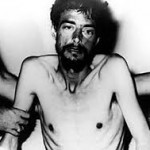 other Middle East conflicts for this disorder once referred to as a syndrome. Some are helped with medication and counseling. Sadly, there are still the homeless veterans who wander the streets, unable or unwilling to get the help they need.
other Middle East conflicts for this disorder once referred to as a syndrome. Some are helped with medication and counseling. Sadly, there are still the homeless veterans who wander the streets, unable or unwilling to get the help they need.
The best thing you can do if you know someone who suffers from PTSD is listen to what they have to say. Encourage them to talk to you about their feelings and experiences. You may not be a counselor who can suggest solutions to them, but you can listen with an open heart and mind and try to be supportive. Show that you care.
And if this is a veteran, don’t forget to thank him for his service.
If you think you might be suffering from PTSD, or know someone who is, here’s a website that lists the symptoms and will help you find solutions.
http://maketheconnection.net/conditions/ptsd?gclid=CMHt_YL_3bwCFZLm7Aodc1MABQ
Writing novels about these men, and meeting people who are dealing with PTSD have given me a greater understanding of what they face. If we haven’t ‘been there’ we can’t truly understand, but we can do our best to offer help and support.
This site is the official voice of Vietnam Veterans of America, Inc., and offers much more information about Post Traumatic Stress Disorder. (http://www.vva.org/archive/TheVeteran/2005_03/feature_HistoryPTSD.htm)
Because 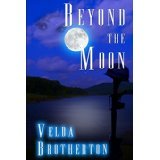 of my interest in this subject and all the research I’ve done, I have written a few books in which a character suffers from PTSD. My latest, BEYOND THE MOON, is the story of Glen Tanner, a Vietnam Veteran who returns home from nine years in a POW camp where he suffered extreme torture. All he can manage to do is paint pictures of the horrors he has undergone. Artist Katherine Kelly is asked to help him turn that talent around and perhaps recover. The two bond and their love becomes one of the healing powers that helps him in his struggle to return to the life he left behind. But can he ever get beyond the pain and terror? I would like to give an Ebook copy to someone drawn from those who comment on this blog.
of my interest in this subject and all the research I’ve done, I have written a few books in which a character suffers from PTSD. My latest, BEYOND THE MOON, is the story of Glen Tanner, a Vietnam Veteran who returns home from nine years in a POW camp where he suffered extreme torture. All he can manage to do is paint pictures of the horrors he has undergone. Artist Katherine Kelly is asked to help him turn that talent around and perhaps recover. The two bond and their love becomes one of the healing powers that helps him in his struggle to return to the life he left behind. But can he ever get beyond the pain and terror? I would like to give an Ebook copy to someone drawn from those who comment on this blog.
JIM: You can find more on Velda and her writing at these links:
Website: http://www.veldabrotherton.com
Blog: http://www.veldabrotherton.wordpress.com
FB: http://www.facebook.com/authorveldabrotherton
Pinterest: http://www.pinterest.com/veldabrotherton
Buy Link: http://www.amazon.com/author/veldabrotherton
Leave a comment for a chance to receive one of her e-books. And give us your thoughts and comments on PTSD. And click on a “Like” or “Share” if you liked this post. Thanks.
March 27, 2015
Lessons Learned
A few years ago, my wife and I were in Oklahoma to remodel a house we owned on some acreage. After looking at it, we decided there was a lot of work to be done. For one thing, there was an enormous room and we decided that it could be converted into two good sized bedrooms. We also needed to remodel one of the bathrooms and completely redo the kitchen – new cabinets, new hot water heater, and on and on.
We had come up from Texas with as many tools as we could get in our small pickup. We spent so much time at Home Depot that summer that we became good friends with one of the associates there. He and his wife have visited us in Texas and we have visited them in their home in Oklahoma.
The house is in a thinly populated area, so there were few close neighbors. We were more than a little surprised when a man just walked into the house and started watching our efforts. After awhile, he made a couple of suggestions on how we might accomplish a task more easily.
After hanging around for nearly an hour, he asked, “Are you staying here at night?”
It was clear no one was staying in this house at night. There was no furniture, and it was certainly not fit for sleeping. I said, no, we were staying in a nearby motel.
He looked around at our tools and asked, “Do you just leave your tools here at night?”
This gave me pause. Why did he want to know about our tools? Finally I said we locked the place up when we left. I tried to make it sound like it was secure. Don’t even think about breaking in.
He acknowledged my statement, turned around and disappeared.
My wife and I didn’t know what to think. I didn’t have many expensive tools here. We had come up in a small Ranger pickup, so space didn’t allow for much, and certainly nothing large. Still, there were several power tools that would be a little expensive to replace.
About thirty minutes later, he walked in again. “My name is Gary. If you will really lock things up tight, I’ve got some power tools that will make your job easier.” He produced a nail gun with various attachments for heavy work or trim work. He offered other tools to make the installation of door hardware easier, faster, and more professionally done.
He said he only lived a half a mile away, but wouldn’t always be around to either deliver or take back the tools, so he would leave them in my care.
Over the next few weeks, he popped in frequently, always with some sound advice and frequently pitching in and helping. And when we were ready to paint the outside, he provided a professional paint sprayer and hoses, after giving me instructions on how to use and clean the equipment.
As with the man from the Home Depot, we became friends with Gary. And to this day, he remains a good friend.
We learned a lot during the renovation. And one valuable lesson was that good friends are all around just waiting for you to be a friend.
March 20, 2015
I Wish I Had a Different Father
Christine Lindsay was born in Ireland, but now makes her home in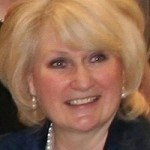 British Columbia, on the west coast of Canada with her husband and their frown family. She tells us some of the motivation behind her historical series.
British Columbia, on the west coast of Canada with her husband and their frown family. She tells us some of the motivation behind her historical series.
What on earth did a father’s love feel like?
One of my clearest memories of my dad was when I was a child of seven, and I was in the hospital for pneumonia. It was his evening to visit me, as my mother was staying at home with my sister. I waited in my hospital bed, looking out the window to the street below, waiting for him to come up the street.
Daddy never showed up. Ten minutes after visiting hours were over he sheepishly staggered in. A frowning nurse allowed him five minutes with me. I smelled the beer on his breath as he leaned over to kiss me on the cheek. How rarely he kissed me, and in spite of the beer-stained breath, the kiss filled a cold emptiness that bunched up in my chest as I’d waited for him. When he left me minutes later, even as a kid of seven I knew my dad spent the time he should have been visiting me, down at the pub. I also knew he was on his way back there, back to the pub to order another drink.
For years I wished I had a different father. Not all of us grew up with the loving dad who carved the Christmas turkey, took us on vacation to the beach, and fixed broken toys. In fact, my dad broke my toys—accidentally of course—but he broke my stuff more frequently than he gave things to me.
His drinking robbed me of my childhood. From the time I was twelve I was looking out for my mother, watching that daddy didn’t hurt her, and helping to financially support her, myself, and my younger brother and sister with my babysitting jobs.
How many families are destroyed by alcoholism?
Thank God the heavenly Father didn’t leave me in that despair. In my teens I learned how much the Lord loved me and He became my dad. It was also the power of a loving savior that helped my mother stand up to her abusive and neglectful husband. My mum and we three kids ran away from my dad in 1978. Daddy sadly remained an alcoholic to his dying day.
Things went well for me, but sadly not for my younger brother and sister. It seemed they inherited the same addiction as our dad. With despair and disgust I watched alcoholism destroy their lives.
It took years of prayer, but at long last I saw God bring my brother out to a life of sobriety. I’m still praying for my sister.
It’s because I’ve seen the power of God changing my life and that of my family that I want to tell everyone I know that you don’t have to remain in that broken despair of an unhappy childhood.
A dark childhood can be changed into a bright and beautiful life.
And I believe in happy endings in my writing because I’ve seen happy endings in my own life through the promises of Jesus Christ.
My entire series Twilight of the British Raj shows the healing of a family first tainted by a father’s alcoholism. In book 1, Shadowed in Silk, my heroine Abby Fraser stands up to her drunken and abusive husband. In book 2, Captured by Moonlight, my Indian heroine Eshana stands up to her fanatical Hindu uncle who won’t allow her to live as a Christian. And in the final book 3, Veiled at Midnight, my character Cam (who was a boy in book 1) and is now a man, faces his inner demons that he has inherited his father’s addiction to alcohol.
It’s because I’ve seen the healing of so many people in my family that I wrote this series set in a historical era. I write not about drunkenness, but the tingling feeling of when God makes everything thing new.
VEILED AT MIDNIGHT,
A s the British Empire comes to an end, millions flee to the roads. Caught up in the turbulent wake is Captain Cam Fraser, his sister Miriam, and the beautiful Indian Dassah.
s the British Empire comes to an end, millions flee to the roads. Caught up in the turbulent wake is Captain Cam Fraser, his sister Miriam, and the beautiful Indian Dassah.
Cam has never been able to put Dassah from his mind, ever since the days when he played with the orphans at the mission as a boy. But a British officer and the aide to the last viceroy cannot marry a poor Indian woman, can he?
As this becomes clear to Dassah, she has no option but to run. Cam may hold her heart—but she cannot let him break it again.
Miriam rails against the separation of the land of her birth, but is Lieutenant Colonel Jack Sunderland her soulmate or a distraction from what God has called her to do?
The 1947 Partition has separated the country these three love…but can they find their true homes before it separates them forever?
JIM: Thanks Christine for sharing with us. Her first romance novel, Londonderry Dreaming, set in Ireland, was published by the Pelican Book Group in 2014. Sofi’s Bridge will be released in 2015.
You can contact her at her website: www.christinelindsay.com
March 13, 2015
We Are Surrounded by Story Ideas
I’m often asked where ideas for a book come from. I’ve spoken and written on this before. For a writer—at least once he or she really gets into the routine of writing—ideas are everywhere. The newspaper and TV news programs are full of ideas. My 94,000 word novel The Silver Medallion was the result of reading a two paragraph article in the Los Angeles Times.
A few years ago, a number of churches in east Texas were burned. 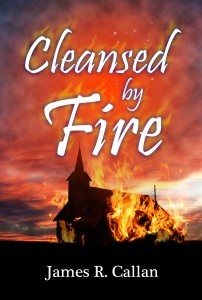 The police finally caught the two young men who were setting the fires. But no real motive came out. It appeared to be a prank to see if they could get away with it. I thought about the fires and began to wonder what motive a person might have to burn several churches. Out of that came Cleansed by Fire, a novel now in paperback, e-book and audio.
The police finally caught the two young men who were setting the fires. But no real motive came out. It appeared to be a prank to see if they could get away with it. I thought about the fires and began to wonder what motive a person might have to burn several churches. Out of that came Cleansed by Fire, a novel now in paperback, e-book and audio.
William Carl wrote his first novel, The Prize, based on some of his experiences as a chemist. He said he introduced a murder to make it more interesting, but the basics of the story were similar to his real life. Another of his books, Daring to Love, was a fictionalized version of a real-life drama he watched while he was in management.
The Sickles Compass, by Stephen Woodfin, is a work of fiction whose central theme is Alzheimer’s Disease. Woodfin had dealt with this progressive disease in his family.
Sunny Frazier has written several books in which the protagonist works in the office of a police department and has a strong interest in astrology. Sunny herself worked in law enforcement for many years. And she has been a serious student of astrology even longer.
Walt and Ann Davis took a trip, visiting every Texas county that touched the border of the state. Out of that came their illustrated book Exploring the Edges of Texas.
Our 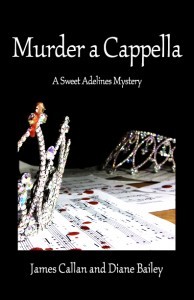 youngest daughter, Diane Bailey, a well-published writer of middle grade and YA books, sang in a chorus that placed fifth in the International finals of the Sweet Adelines. We decided that would be a good setting for a murder mystery. Murder a Cappella was published by Wayside Press.
youngest daughter, Diane Bailey, a well-published writer of middle grade and YA books, sang in a chorus that placed fifth in the International finals of the Sweet Adelines. We decided that would be a good setting for a murder mystery. Murder a Cappella was published by Wayside Press.
Some time back, I read an interesting folk tale about Texas before it was an independent country. I don’t write historical novels. So, I wondered how that folk tale could affect life in the twenty-first century. A Ton of Gold resulted from reading this folk tale. The book is 90,000 words long; the folk tale was four pages. Clearly, long novels can come from small prompts.
Corey Mitchell, a Los Angeles Times bestseller, writes true crime. He searches for some crime already resolved and researches all the facts. He then weaves those into an interesting book. Obviously, they are popular books.
Take a story from the day’s news and ask the famous writer question: what if? What if the crime had not been solved? What if the police made a mistake and arrested the wrong man? What if the victim had been a celebrity, or not a celebrity? What if the girl had gotten on the wrong bus and this handsome man had helped her find her way back? What if the boy’s dog had been hit by a car and wasn’t there to defend the little boy? What if you gave a mouse a piece of chocolate? What if the President ‘s daughter, just as a lark, escaped from her bodyguards? What if the star quarterback broke his thumb before the big game with all the scouts present? What if you were writing your memoir and discovered a family secret that (pick one) shocks, amazes, terrifies, enlightens, changes your view on …? What if you find some letters from your grandmother that no one else has seen? What if your reclusive neighbor suddenly needs your help and must explain why he lives as he does?
Then, let your mind tumble ideas and see where they lead. Nothing is impossible. Outlandish things can happen. The range of things people are capable of, good or bad, is unbounded. And no character you can dream up is beyond reality. You cannot make your characters bigger than life. But you can make them bigger than normal, bigger than those around you, bigger than you have in previous writings.
Fiction is without bounds. Let you imagination run wild on story and characters. Do not be afraid to write an outlandish story. As unbelievable as you might think it is, it is not stranger than real life. There is only one restriction on you.
You must write it well.
March 6, 2015
Over My Dead Body
On May 1, the second Father Frank Mystery, Over My Dead Body, is scheduled to release. So, today, I’m going to preview chapter 1. Let me know what you think.
Chapter 1
Syd snorted and thrust his chin toward his adversary. “Over my dead body.”
The man almost smiled. “If you insist,” he said easily.
Seventy-two year old Syd Cranzler squinted against the bright Texas October sun and scrutinized the well-dressed man in front of him. Syd was probably six inches shorter than the man, but Syd’s voice had more iron in it. “Was that a threat?”
“No sir, Mr. Cranzler,” Duke Heinz said.
Syd didn’t like this city slicker, wouldn’t have even if he weren’t trying to steal Syd’s homestead. Even Duke’s clothes irritated him. The conservative black pinstriped suit, power-red tie and black wing-tips polished to perfection made the man look like he was posing for a magazine picture in New York City. And what was this “Duke” bit? Did he think he was John Wayne? “Why don’t you just mosey on down the road a mile?” He jerked his hand up and pointed. “Lots of land there.”
They stood on pine needles under three towering trees. Forty feet behind them was Syd’s small, frame house, looking like a giant, square tumbleweed.
Bud Wilcox, Pine Tree’s City Manager pushed his straw hat back a little and took a step forward. “Syd, Pine Tree wants this shopping center here, inside the city limits. Think of all the tax revenue we’ll get.”
“So’s you can waste even more’n you do now? It ain’t your house and land, Pipsqueak”
Bud reddened at the nickname Syd often used on him, but kept his mouth shut.
A mud-caked ‘92 Camaro rattled to a stop half off the black-top road. A man got out and started across the yard to where Syd was shaking his finger at Bud.
Duke started to speak, but Syd cut him off. “And don’t tell me again it’s twice what it’s worth. You don’t know what it’s worth to me. And what’s this ‘fee simple’ bit?” He cocked his head to the side. “You think I’m simple? Take your money and go back to Jersey.”
Bud waggled his balding head. “It’s a lot of dollars.”
“He don’t need your money,” said the man from the Camaro. “He stole enough from me.”
“Stay out of it, W.C.,” Syd snapped. But his focus never left Duke. “You keep your money; I’ll keep my land.”
Duke spread his hands. “Mr. Cranzler, the Supreme Court says eminent domain can be used to obtain land needed for a project in the public interest.”
“I know all ‘bout the Supreme Court, and how they trampled all over people’s property rights. I’d like to see some private company try to take the land they live on. They’d change their tune right fast. But that case was decided for a Yankee town. This is Texas. We still believe in property rights down here. And this ain’t in the public interest. It’s in Lockey Corporation’s interest.”
Duke smiled as he pulled a folded paper from the inside pocket of his coat. “Here’s the court order, and it’s signed by a judge right here in Texas.” He held the paper out to Syd.
Syd ignored it. “Judge McFatage, right? He’d sign anything for a price.”
Bud Wilcox leaned in. “Now, Syd, you shouldn’t talk about the Honorable McFatage that way.”
“Honorable, my foot. He’s for sale. Common knowledge. You know what they say: he’s the best judge money can buy. And it looks like Lockey’s the buyer.”
“Look, Mr. Cranzler,” Duke said. “We’re going to start dirt work in three weeks. I’d like to have all the paperwork in order by then. You’ve lost this fight. You might as well recognize that. You can delay signing. But by fighting this, you may end up getting less money and paying a lot of it to lawyers. You can’t stop it. This project will be built. And it starts in three weeks.”
“Three weeks?” Syd pulled on his chin and a sly grin crept onto his leathery face. “I’m bettin’ my lawyer’ll have my appeal filed before then. And I’m thinkin’ I can tie this up for years. You sure Lockey wants to wait that long?” His head bobbed up and down as he continued. “Be a lot faster to go somewheres else.” Now he laughed. “Bet they’re gonna cut you loose when this don’t happen. Can your butt.”
Duke’s smile faded and his eyes turned hard. “Two months from now, this will all be asphalt.”
“Like I said, over my dead body.”
Duke put the paper back in his pocket. “Old man, you’ll hardly make a bump in the pavement.”
End of Chapter 1
Jim: Let me know if you think this works as an opening. Thanks.



